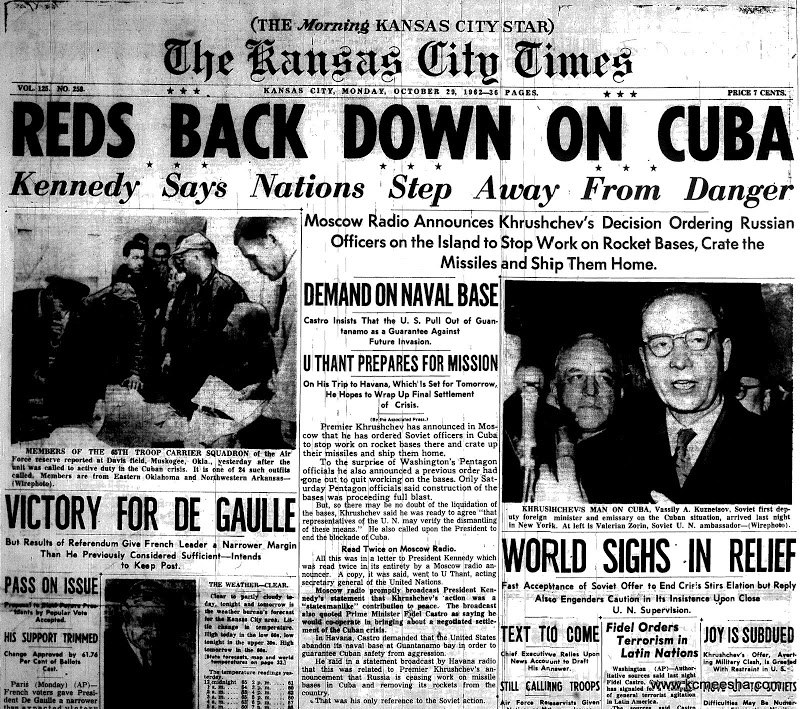
National Security Council Executive Committee (ExComm) Meeting, John F. Kennedy Archive and Museum, 1962
Outcome
As a result of his coercive diplomacy, Premier Khrushchev and
President Kennedy reached a compromise to prevent a global nuclear
war. The Soviet Union would remove all of its missiles and bomber
planes from Cuba (achieved on November 20, 1962) as long as the
United States removed its missiles from Turkey (achieved in April 1963).
The blockade on Cuba remained in effect until the Soviet Union
accomplished its part of the compromise.

The Kansas City Time, "Red Backs Down On Cuba", October 28, 1962
"Let every nation know, whether it wishes us well or ill, that we shall pay any
price, bear any burden, meet any hardship, support any friend, oppose any foe,
to assure the survival and the success of liberty. "
John F. Kennedy, Inaugural Address, 1961

Oregon Historical Society, "Cuban Missile Crisis Protest", October 24 1962
Aftermath
The Cuban Missile Crisis set the tone for the rest of the Cuban Missile Crisis. Those who were opposed to the United State's involvement in Cuba and foreign affairs continued growing and showing their anti-war sentiment through protests and writings of opposition. This type of opposition would continue to be seen through the rest of the Vietnam War. Additionally, the Cuban Missile Crisis gave additional power to the The United States over the Soviet Union. People started forgetting the failure that was the Bay of Pigs that had begun to overshadow President Kennedy's presidency, regarding him as a successful president. In regards to the Soviet Union, more individuals started doubting their power on the global scale after not gaining an advantage over the United States during the Cuban Missile Crisis. Finally, on December 25th, 1991, the nation of the Soviet Union collapsed leading the way for the creation of Russia led by President Boris Yeltsin.